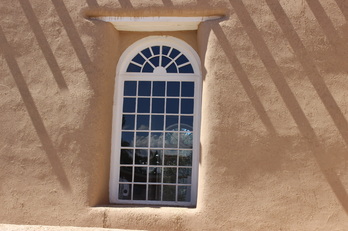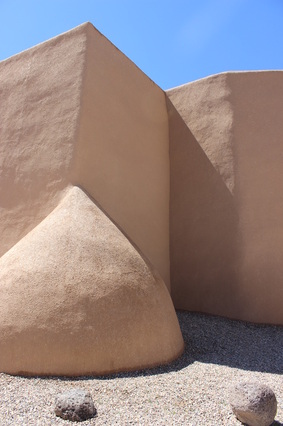 Sitting with my book manuscript, yes, no, maybe, a book of gentle editorial advice for poets, I am filled with a sense of rightness. I have pages and pages to complete, facts to check, and permissions to ask for; and yet, the feeling continues to be one of unadulterated joy. Until. What is it about human psychology, where alongside joy, we find doubt? The toothache is gone, but that hole in my mouth where my tongue gravitates, why is it so seductive? Usually I have enough natural rebellion in me to continue, to push through the doubt into the flow where negativity can’t breathe. Usually. Today I have allowed doubt her entrance. Not doubt about my intent. Or my ability. But about the current literary culture, and my place in that culture. I am what my high school psychology teacher called (as she looked directly at me), a late bloomer. I quit college to get married, and returned to school with a burning desire to learn. After years of attending part-time, I remember the exact moment while I was choosing items in the college bookstore, when I knew all I wanted to do was write. I’d had a modicum of success with words, and was bored with classes and the students who were already 15 years younger than me. I also had five kids of my own at home, all at various stages of growth and need. I put my over-priced bookstore items down and walked out. I didn't have a plan, I had a passion. My godmother knew my dilemma and asked the right questions: If you want to write, why are you majoring in something else? Why don’t you just write? You know that feeling where things click, where a person, or a mid-century modern, or a blueberry scone and cup of Sumatran coffee are meant just for you? That was my moment. I thanked the universe for the extreme good fortune of having this woman in my life, and for clarity. Bolstering my new image as an independent writer, I wrote two non-fiction books that were accepted and published with very little stress. The books were well-received; one is still being used at women’s retreats. I envisioned book after book written for the same publisher, easy success, even financial success. And then poetry found me. It changed everything. It changed me. Poetry filled the emptiness of leaving my beloved church, it filled the places I didn't even know needed filling. It became voice and it became prayer. There was no doubt, not one, that this was where I was supposed to be, tweaking lines, taking a word out and putting that same word back in twenty minutes later. This was where I was my best self. It has been that way ever since. Until now. Doubt. It assaults me with both hands around my throat. As I read through a copy of Poets & Writers or a best new poet’s volume edited by someone named Jazzy, I acknowledge that most of today’s published poets come with pedigrees, or rather, several degrees. I love education, what it opens in us, what it opens for us, but cannot add a degree to my own bio, and as co-editor of a small literary magazine, I feel rather naked admitting this. Recently, my husband and I, needing to investigate the Southwest beyond Denver, beyond driving due west into the Rockies, took off for Taos, New Mexico. The stunning views from the car and while hiking at 10,000 feet, the humility of the people, and the pull of open spaces, unearthed something in me. I brought that peace back with me to the city, let it slip down over my arms and hips and thighs. I let it hold me. Because I fell in love with the landscape, I researched a residency that would allow me uninterrupted weeks in that atmosphere, where I might complete my book. After downloading the residency application, the first question stopped me: Schools of Study (Do not list credits. List only time spent and degrees, if any.) I considered writing the inexplicable, not applicable, then thought better of it. The form languishes in a stack of papers. The doubts that assail most writers are massive; we are afraid we are not smart enough/ young enough/old enough/clever enough to find publication in an age of confusion, and specifically for writers, an age of extreme publishing confusion. We hope not having an MFA doesn't affect our chances for publication, unless we have an MFA, and then we hope our work is strong enough to honor that MFA. We are doubt-ridden beggars, waiting for some editor or publisher to grant us entry. And once we’re through their door, there is no guarantee, no assurance that our next poem or short story or book will get us through that very same door a second time. It is a maddening vocation. While talking with a good friend the other night, I found myself using that word several times. Because ours is not a hobby or a temporary distraction, not even what we do for praise and attention. It is our vocation. And my current fear that my lack of a degree is holding me back, is the reality I must live with and work through, because I won’t stop writing and I won’t stop submitting. It’s like parenting; you don’t get to stop in the middle of the job because it gets harder. And like parenting, there are several possible outcomes. As I fondle these slick pages of copy paper from Sam’s Club, paper with simple black marks, my simple black marks, I choose not to bow down to the god of doubt. I have no time for this. Even if my book isn't written 300 miles from home in an orange adobe casita, it will be completed. I will then pray some editor will understand what I’m attempting to convey with my words, and that she will bless me, in spite of no stamp of approval from an educational system, with her editorial pen, saying yes, yes, yes to my yes, no, maybe. Postscript: I dug through my papers, pulled out the residency application, and wrote not applicable in the blank. Yes, no, maybe is one third yes and one third maybe. Those are pretty good odds.
1 Comment
Laura
9/10/2013 02:45:37 am
Love this blog, Colette!
Reply
Leave a Reply. |
Archives
October 2022
AuthorMy writing often deals with the environment, my poetry filled with allusions to natural and man-made disasters. I have unlimited hope though; there is just too much wonder in this world to become a defeatist. To quote Margaret J. Wheatley, '"Hopelessness has surprised me with patience." Categories |

 RSS Feed
RSS Feed
